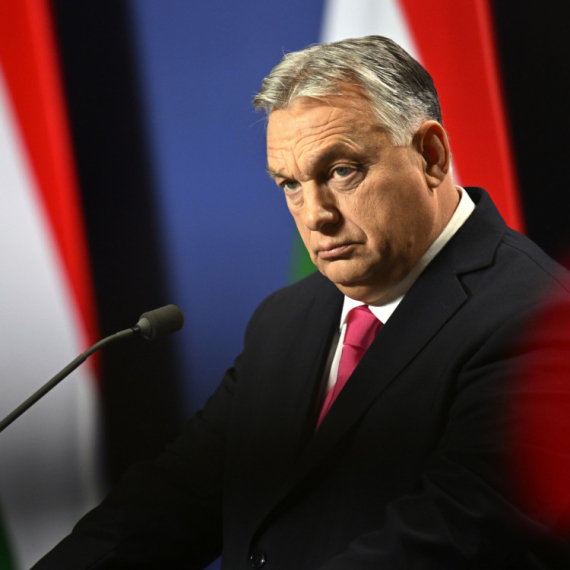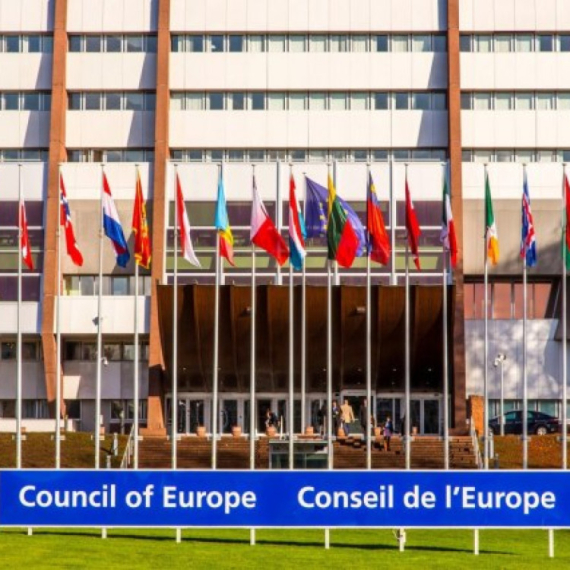Serbia's financial system "not in jeopardy"
NBS Governor Jorgovanka Tabaković said Friday that despite the high percentage of problematic loans, Serbia's financial system was not in jeopardy.
Friday, 02.11.2012.
14:00

BELGRADE NBS Governor Jorgovanka Tabakovic said Friday that despite the high percentage of problematic loans, Serbia's financial system was not in jeopardy. At a conference entitled Financial System and the Economy - Responses to the Challenges of the Crisis, the central bank chief said Serbia had one of the highest rates of problematic loans in the region - they account for 19.9 percent of all loans. Serbia's financial system "not in jeopardy" On the other hand, the share of problematic loans has risen the least in Serbia since the start of the crisis, she said. Stressing that the stability of the banking system was satisfactory, Tabakovic said this was confirmed by capital adequacy above 16 percent, and full coverage of problematic loans with appropriate reserves. According to Tabakovic, Serbia is one of the rare countries in the region which is seeing a slowdown, but not a reduction in credit activity. She said a significant drop in problematic loans could not be expected in the short-term, but that this would come with economic recovery in the coming years and the arrival or more quality investments. Noting that the current challenge facing countries in the region is reducing the exposure of banks based in the EU, Tabakovic added that these countries need to have a proactive role, such as the Vienna Initiative. She said foreign banks from the EU held 74 percent of the assets of the Serbian banking sector, and that the way to discourage their rapid withdrawal from the market were central bank regulations aimed at preventing sudden changes which would threaten the stability of the market. Tabakovic said that the managed floating exchange rate took the brunt of the first crisis wave in Serbia, while countries with a fixed rate suffered major economic crashes. She also said the country's credit rating was likely to rise if the government moved forward decisively with key reforms of the tax and pension systems and corporatization of the public sector. The NBS will continue to work to stabilize the inflation at a low level and maintain a robust financial system, which is the best way to help the economy and create a favorable environment for investments, said Tabakovic. Jorgovanka Tabakovic (Tanjug) Tanjug
Serbia's financial system "not in jeopardy"
On the other hand, the share of problematic loans has risen the least in Serbia since the start of the crisis, she said.Stressing that the stability of the banking system was satisfactory, Tabaković said this was confirmed by capital adequacy above 16 percent, and full coverage of problematic loans with appropriate reserves.
According to Tabaković, Serbia is one of the rare countries in the region which is seeing a slowdown, but not a reduction in credit activity.
She said a significant drop in problematic loans could not be expected in the short-term, but that this would come with economic recovery in the coming years and the arrival or more quality investments.
Noting that the current challenge facing countries in the region is reducing the exposure of banks based in the EU, Tabaković added that these countries need to have a proactive role, such as the Vienna Initiative.
She said foreign banks from the EU held 74 percent of the assets of the Serbian banking sector, and that the way to discourage their rapid withdrawal from the market were central bank regulations aimed at preventing sudden changes which would threaten the stability of the market.
Tabaković said that the managed floating exchange rate took the brunt of the first crisis wave in Serbia, while countries with a fixed rate suffered major economic crashes.
She also said the country's credit rating was likely to rise if the government moved forward decisively with key reforms of the tax and pension systems and corporatization of the public sector.
The NBS will continue to work to stabilize the inflation at a low level and maintain a robust financial system, which is the best way to help the economy and create a favorable environment for investments, said Tabaković.
















































Komentari 0